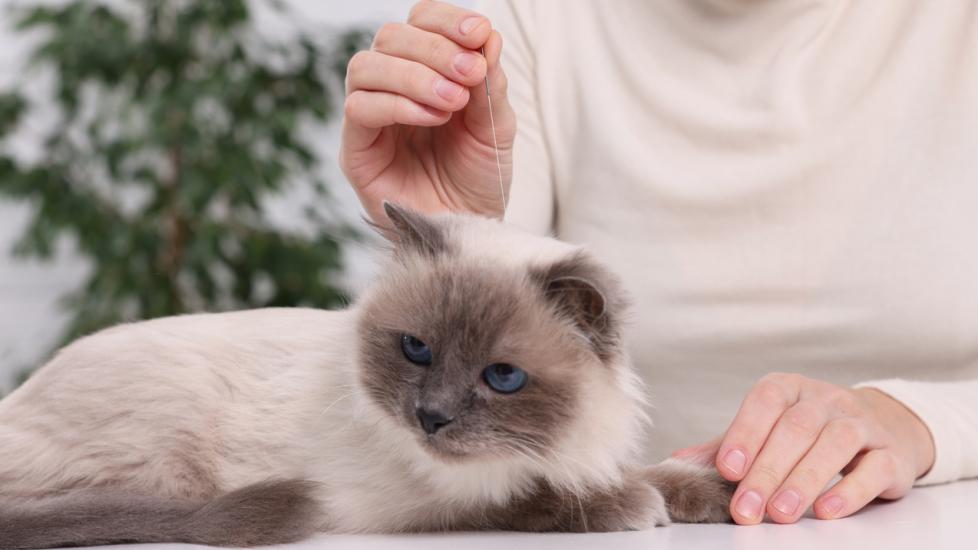 Cats, with their graceful movements and independent natures, are beloved companions worldwide. However, like all animals, they can suffer from various health issues that may require alternative treatment methods such as acupuncture. This ancient Chinese practice has gained recognition in the veterinary field for its potential to alleviate pain, improve mobility, and enhance overall well-being in cats. In this article, we will explore what acupuncture is, how it works on feline patients, and whether it might be a suitable option for your furry friend.
Cats, with their graceful movements and independent natures, are beloved companions worldwide. However, like all animals, they can suffer from various health issues that may require alternative treatment methods such as acupuncture. This ancient Chinese practice has gained recognition in the veterinary field for its potential to alleviate pain, improve mobility, and enhance overall well-being in cats. In this article, we will explore what acupuncture is, how it works on feline patients, and whether it might be a suitable option for your furry friend.
Acupuncture is an integral part of Traditional Chinese Medicine (TCM), which views the body as a complex system of energy, or “qi” (pronounced “chee”), flowing through pathways known as meridians. According to TCM theory, when qi becomes blocked or imbalanced, illness occurs. By inserting fine needles into specific points along these meridians, called acupoints, practitioners aim to restore balance and promote healing.
For cats, acupuncture can be used to treat a variety of conditions, including arthritis, back pain, neurological disorders, digestive issues, and allergies. It may also help reduce anxiety and stress associated with travel or vet visits. The treatment itself typically involves a series of sessions, each lasting 15 minutes to an hour, depending on the cat’s needs and response to therapy.
During an acupuncture session for cats, the animal lies comfortably while the veterinarian or certified acupuncturist inserts sterile, single-use needles at strategic locations on the body. These needles are much thinner than those used in human acupuncture, designed to minimize discomfort for the pet. Some cats even seem to enjoy the process due to the release of endorphins, natural painkillers produced by the body during acupuncture.
It’s important to note that not every cat will respond positively to acupuncture, and results vary among individuals. Additionally, because acupuncture does not involve the use of drugs, it generally produces fewer side effects compared to conventional medications. However, as with any medical intervention, there is always a risk of allergic reaction or other adverse events. Therefore, consulting with a qualified professional before beginning treatment is crucial.
Before considering acupuncture for your cat, you should discuss the benefits and risks with your primary veterinarian. They can provide guidance based on your cat’s condition and recommend reputable clinics or specialists who offer this service. It’s also worth noting that some insurance policies cover acupuncture treatments if prescribed by a veterinarian.
In conclusion, acupuncture offers a holistic approach to managing certain ailments in cats, providing relief where traditional therapies have failed. While it isn’t a cure-all solution, it can complement Western medicine and contribute to the quality of life for our feline friends. As responsible pet owners, we must weigh the options carefully and choose the best path forward for our cherished companions.
